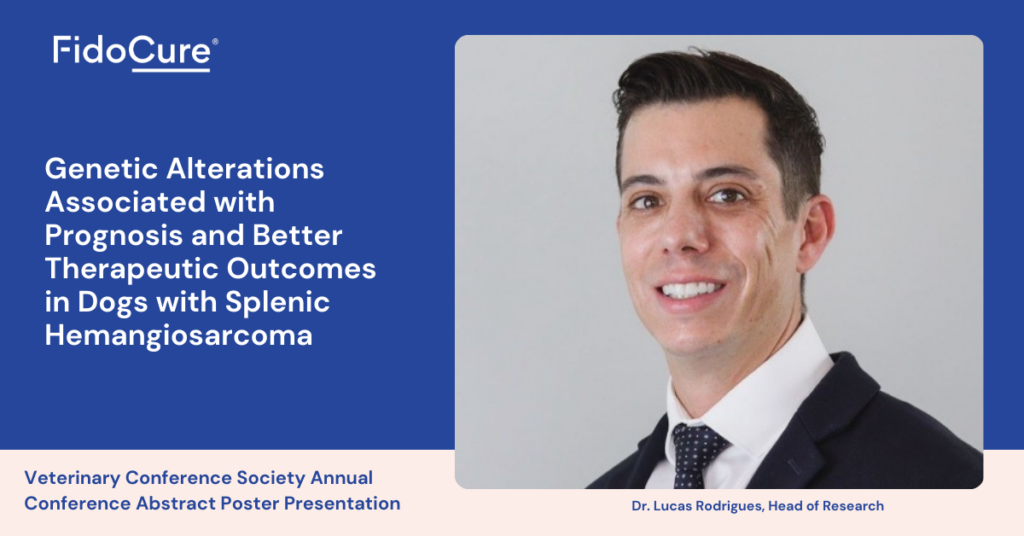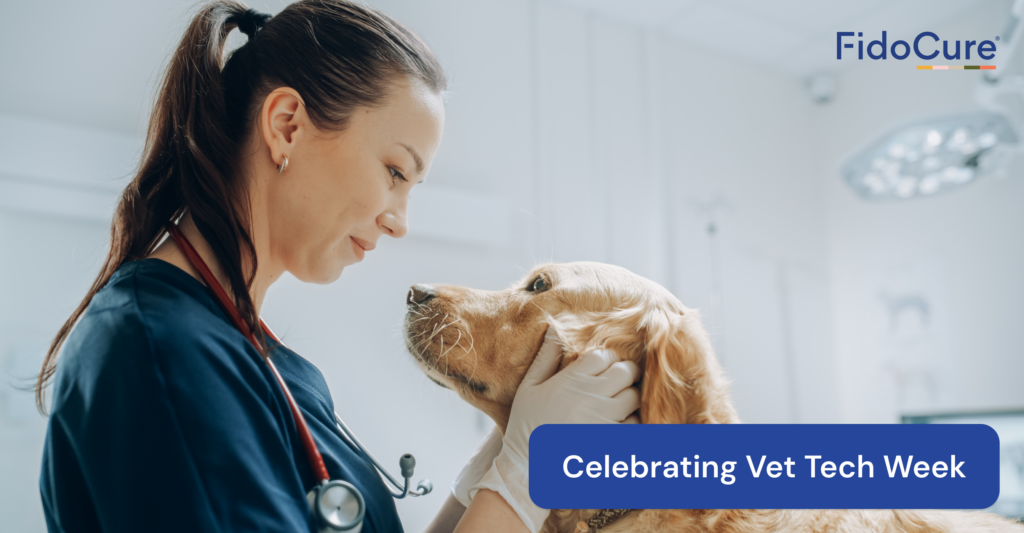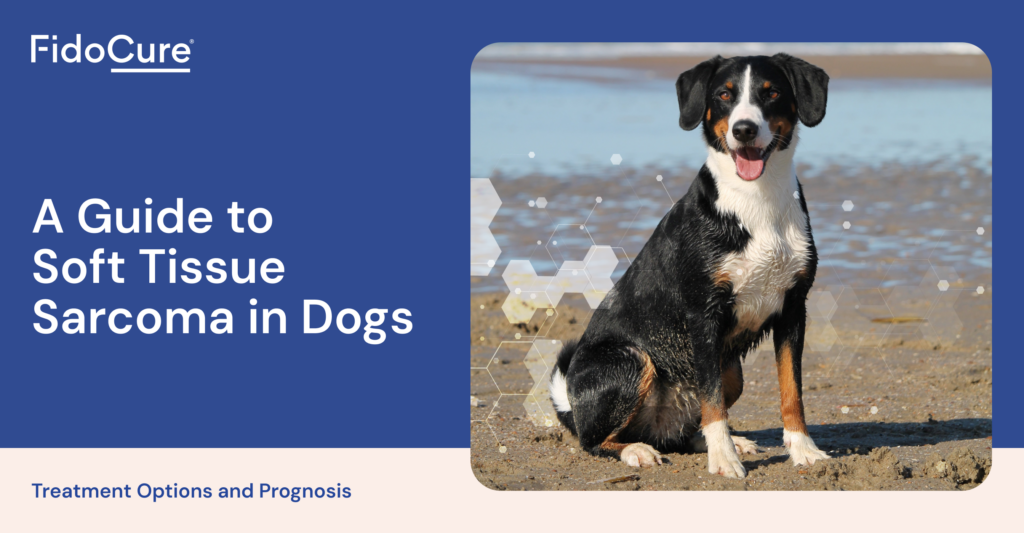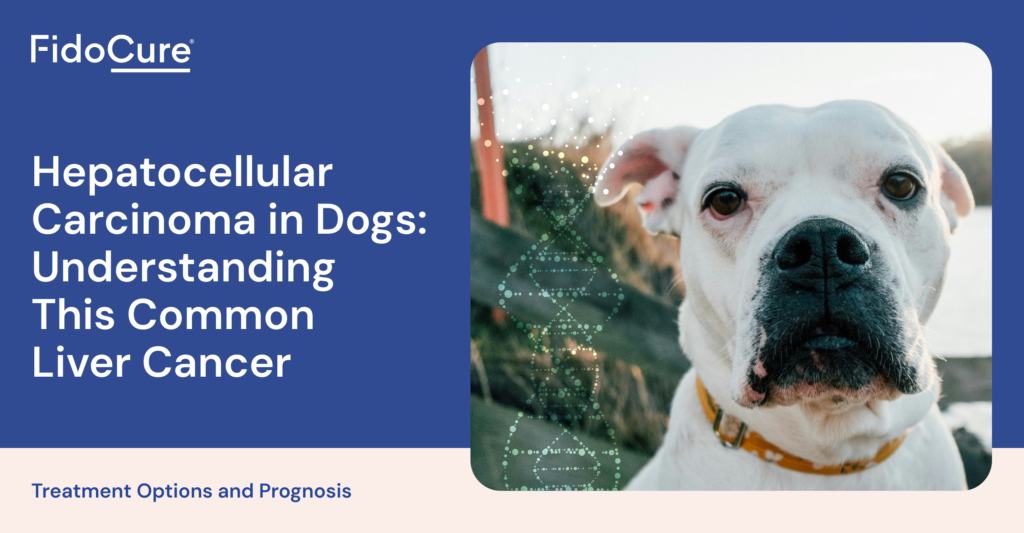FidoCure To Unveil Breakthrough in Canine Hemangiosarcoma at 2024 Veterinary Cancer Society Annual Conference

PALO ALTO, Calif. (October 15, 2024) — FidoCure, a leader in AI-driven precision oncology for dogs, is excited to share landmark findings at the 2024 Veterinary Cancer Society (VCS) Annual Conference. This research, Genetic Alterations Associated with Prognosis and Better Therapeutic Outcomes in Dogs with Splenic Hemangiosarcoma, marks a significant advancement in the fight against hemangiosarcoma, […]
Pancreatic Cancer in Dogs

Pancreatic cancer, though rare, is a serious condition in dogs, with two of the most common forms being insulinoma and pancreatic adenocarcinoma. These tumors can be life-threatening, but early detection and specialized care, including emerging treatments like targeted therapies, offer new hope for affected dogs.
What to Know About Anal Sac Carcinoma

Anal sac carcinoma is a highly aggressive cancer that develops in the small glandular structures on either side of a dog’s anus. These sacs produce a strong-smelling substance that dogs use as a territorial scent marker, among other reasons. Normally, this substance is released during defecation or when a dog is nervous or excited. However, […]
FidoCure Leads Canine Cancer Research with the World’s Largest Canine Cancer Database

At FidoCure, we’re committed to transforming cancer care for dogs through precision medicine. Our journey began with a mission to address a critical gap in canine cancer research and treatment. Prior to 2019, the field of canine cancer genomics lagged significantly behind its human counterpart. With only 2,000 canine tumor samples sequenced worldwide (compared to […]
FidoCure Celebrates National Veterinary Technician Week

As National Veterinary Technician Week (October 13-19) approaches, FidoCure is proud to celebrate the vital role vet techs play in supporting pets and their families in the fight against cancer.
A Guide to Soft Tissue Sarcoma in Dogs

Soft tissue sarcomas are one of the most common cancers affecting our canine companions. These tumors develop from a variety of soft tissue cells throughout the body, forming masses that pet owners often discover while petting their dogs. Soft tissue sarcomas can appear anywhere on the body but are frequently found on the limbs, trunk, […]
Do Human Cancer Drugs Work on Dogs With Cancer?

At FidoCure, we’re pioneering a revolutionary approach to treating canine cancer by bringing the power of precision medicine from human oncology to veterinary care. If your beloved dog has been diagnosed with cancer, you may have been told that the treatment options are limited. However, thanks to groundbreaking research and innovative technologies, there’s new hope […]
Hepatocellular Carcinoma in Dogs: Understanding This Common Liver Cancer

Hepatocellular carcinoma (HCC) is the most common primary liver cancer in dogs. It can present as a single mass, multiple nodules, or diffuse spread throughout the liver, which increases the risk of metastasis. The main treatment options are surgical removal, metronomic chemotherapy, and/or Palladia. The prognosis is generally good for the single, massive form after […]
How Pet Insurance Can Ease the Financial Burden of Cancer Treatment

When our beloved pets are diagnosed with cancer, it can be an emotionally and financially challenging time. As veterinary oncology advances, new and innovative cancer treatments are becoming available for our furry family members. However, these cutting-edge therapies can come with a significant price tag.
What to Know About Nasal Adenocarcinoma

Nasal adenocarcinomas are relatively uncommon but represent nearly two-thirds of nasal tumors in dogs, which are locally invasive and have a higher risk of metastasis in later stages. Radiation therapy is the primary treatment to slow tumor growth, with patients living around one year on average. Newer approaches like metronomic chemotherapy and precision medicines targeting […]